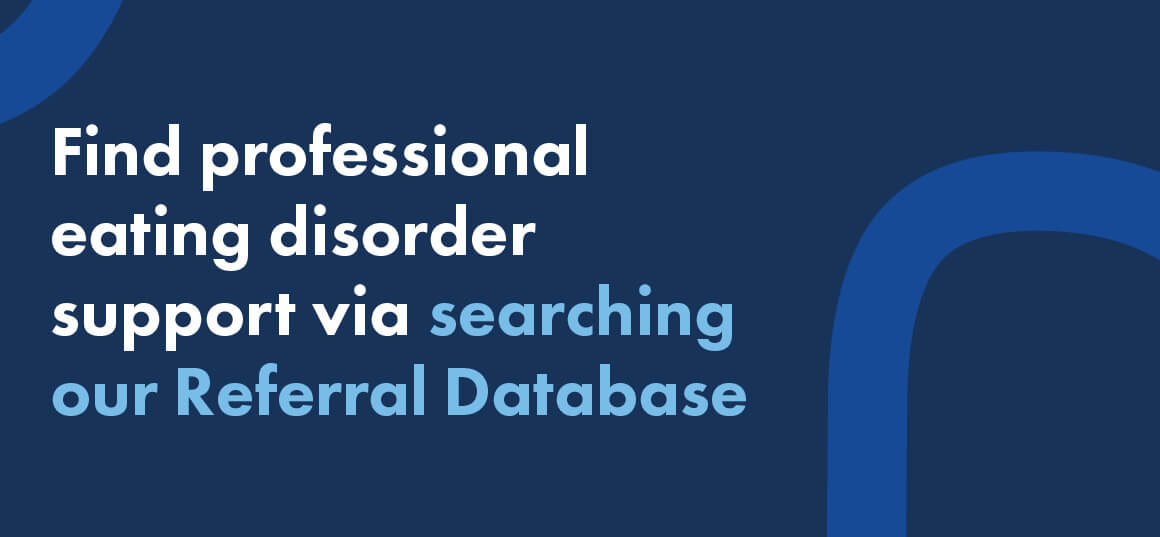Tips for dietitians working with people experiencing eating disorders
This week is #DietitiansWeek2022, with the theme Dietitians Improve Lives speaking to the enormous impact dietitians can have on improving our relationships to food, eating and nutrition.
While eating disorders are about more than just food, dietitians play a key role in eating disorder treatment. This could be through supporting individuals to heal their relationship to food and nutrition, reversing the impacts of malnutrition, developing eating behaviours that support recovery, and challenging diet culture and common dieting/food myths.
In this blog, we ask a dietitian who works with people experiencing eating disorders for their top tips in ensuring effective and safe practice, while also sharing resources and information that can help health professionals expand their knowledge on eating disorders to better support their clients.
“Dietitians play a pivotal role in helping individuals with eating disorders and their families understand the interaction between food, nutrition and well-being, as well as supporting eating behaviours that align with their treatment and recovery goals.” – Heruc, et al.
Tips for dietitians
Work in a multidisciplinary care team
Treatment and recovery outcomes are best when a person-centred, multidisciplinary care team approach is provided for a person experiencing an eating disorder. This involves dietitians working alongside a medical practitioner and mental health professional, and involving family and supports where possible.
Provide care and treatment within your scope of practice
All dietitians have a crucial role in identifying and responding when a person is experiencing an eating disorder. Some dietitians will also provide evidence-informed dietetic treatment. It is the role of the dietitian to identify when a person requires referral to another dietitian with expertise and experience in eating disorders.
Dietitians Australia’s Eating Disorder Role Statement can assist with this.
Understand the stepped system of care for eating disorders
The stepped system of care for eating disorders is the full continuum of coordinated, evidence-based services that increase or decrease in intensity according to a person’s needs. By understanding the system of care for eating disorders and being informed about services available, dietitians can support people experiencing eating disorders to access the right treatment at the right time.
Eating disorder recovery is not a linear journey and relapses and setbacks may be common. It is also deeply personal and how one person reacts to treatment may be completely different from another. The stepped system of care acknowledges that people may require access to a range of different services, at different levels of frequency or intensity, across the course of their illness. Dietetic services and support is necessary during most stages of this continuum.
Seek support and supervision
Regular and ongoing clinical supervision is an essential component of professional practice for dietitians involved in the care and treatment of a person experiencing an eating disorder. Supervision enables dietitians to develop knowledge and competence, and is an opportunity for professional self-care, learning and reflection.
As a part of the ANZAED Credentialing Project, NEDC is providing Professional Development Packages of free training and/or supervision.
Join Butterfly’s Referral Database to find eating disorder clients
More than a third of people living with an eating disorder have had difficulty finding a knowledgeable healthcare provider to access treatment. People may be hesitant to seek help, but we know if the health professional is appropriately experienced, it may make for a more positive outcome.
If you’re a dietitian or other health professional who is trained and qualified to treat eating disorders, consider joining Butterfly’s Referral Database. This is a free directory that allows consumers to search by area for qualified practitioners. As a health professional, joining the Database can also connect you with new clients.
Resources
- ANZAED Practice and Training Standards For Dietitians Providing Eating Disorder Treatment
- ANZAED eating disorder treatment principles and general clinical practice and training standards
- ANZAED Credential – The ANZAED Eating Disorder Credential is formal recognition of qualifications, knowledge, training, and professional development activities needed to meet minimum standards for the delivery of safe and effective eating disorders treatment.
- Dietitians Australia (DA) – Eating Disorder Role Statement
- NEDC and Dietitians Australia Eating Disorders and the Dietitian Decision-Making Tool
- National Framework for Eating Disorders Training
- Eating disorder Medicare Items – People living with an eating disorder can access treatment through either an Eating Disorder Treatment and Management Plan (EDP), Mental Health Care Plan, and/or Chronic Disease Management Plan. An EDP provides up to 40 sessions of evidence-based psychological treatment from a mental health professional and up to 20 sessions of dietetic services from an accredited practicing dietitian over a 12-month period.
- Refer to Butterfly’s Services



















